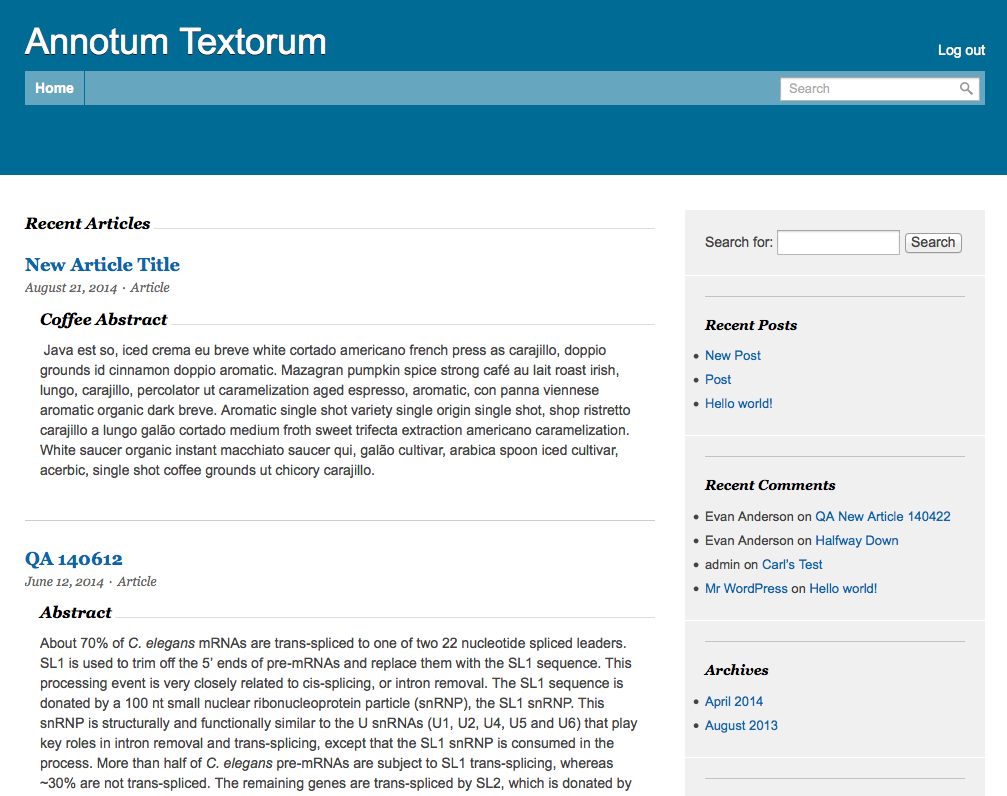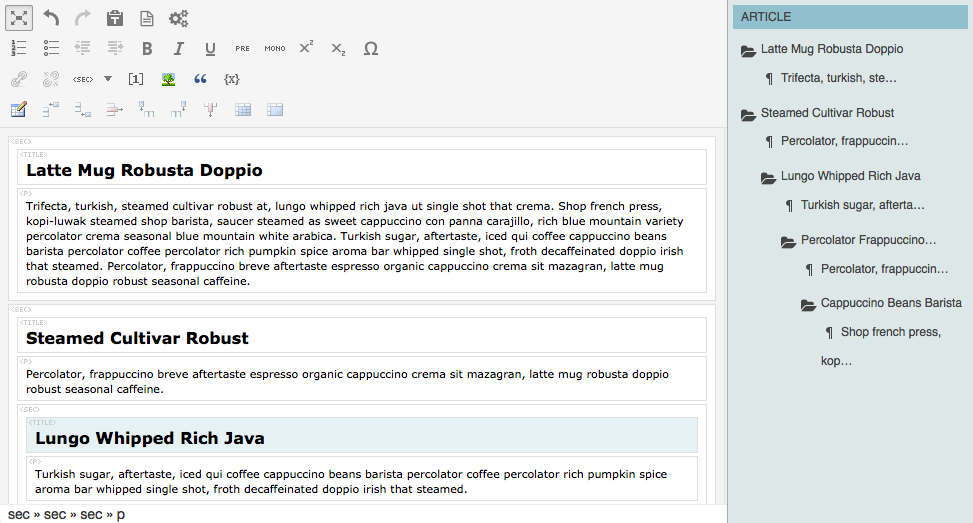We are proud to announce the release of the new and improved open-source Annotum WordPress theme. The new Annotum is compatible with WordPress 3.8+, and more completely supports valid scholarly article authoring. To class it up, we introduced a number of other improvements. Annotum is a product of Solvitor with heavy lifting by Crowd Favorite, in collaboration with National Center for Biotechnology Information (NCBI).
Annotum is built on top of WordPress to provide a scholarly publishing engine for quick authoring, peer review, and distribution. We originally launched Annotum in 2011 as a solution for users who had previously used Google Knol. You can read more about the initial release in our theme launch post or follow and fork the Annotum code on Github.

Best of all, Annotum is free (as in speech and beer).
Annotum 2.0 boasts the Textorum editor, which provides greater flexibility and support for entire XML schema documents. With Textorum, Annotum writes well-formed and valid JATS XML and produces articles that can be accepted by the PubMed Central (PMC) or NLM. The Annotum editor is no longer a fixed system for providing a limited number of hard-coded tags.

Annotum 2.0 provides greater validation support, making it virtually impossible to produce invalid XML — less room for human error. To help ensure articles are schema compliant, validation occurs at every step of the publishing process: when a user imports an existing article, while they’re editing the article, and every time the article proceeds to the next step of the review process. Advanced users are able to edit the XML with the new code editor to correct any errors or add additional attributes and tags not provided by the editor.
Annotum should make it a relatively straightforward task to create structured journal content. A writer-friendly environment that facilitates the creation of well-formed, schema-compliant XML is the tool we have all been waiting for.
Jeffrey Beck, NCBI
Annotum 2.0 is also compatible with the current release of WordPress (3.9.2). In version 3.9 of WordPress the rich text editor (TinyMCE) got a big update that made it incompatible with Annotum 1.x. In fact, there were several improvements to better support newer core WordPress functionality, including the latest media library implementation. With all these fresh updates, the Annotum theme continues to leverage the all the newest, great features and functionality found in WordPress while also providing better usability, support, and authoring tools.






